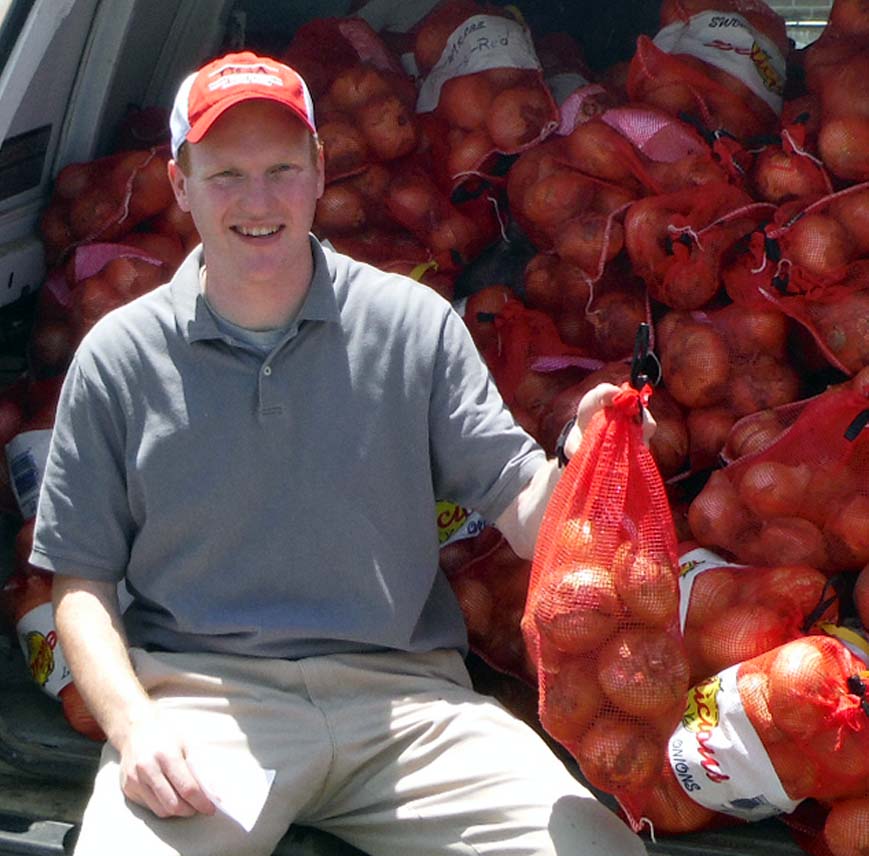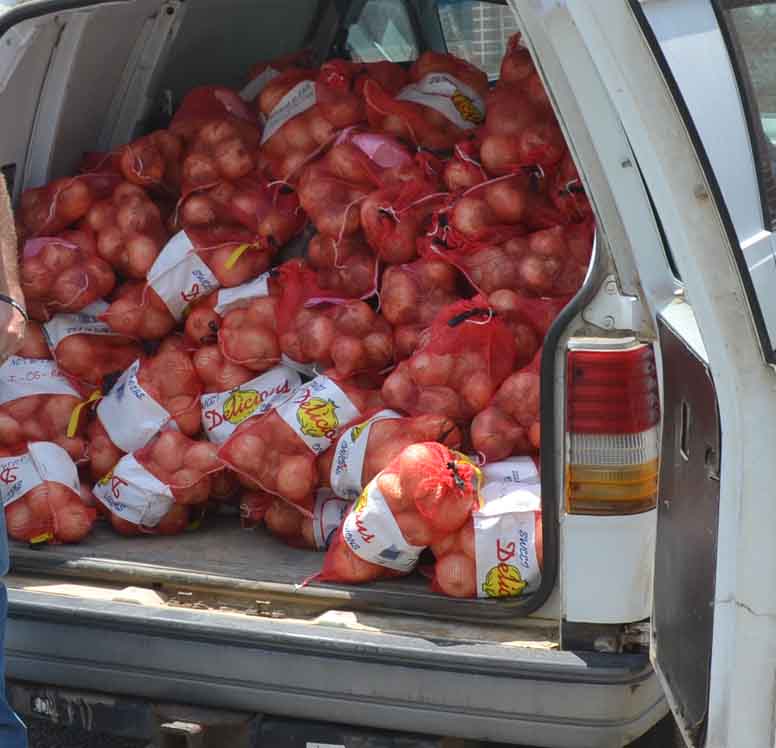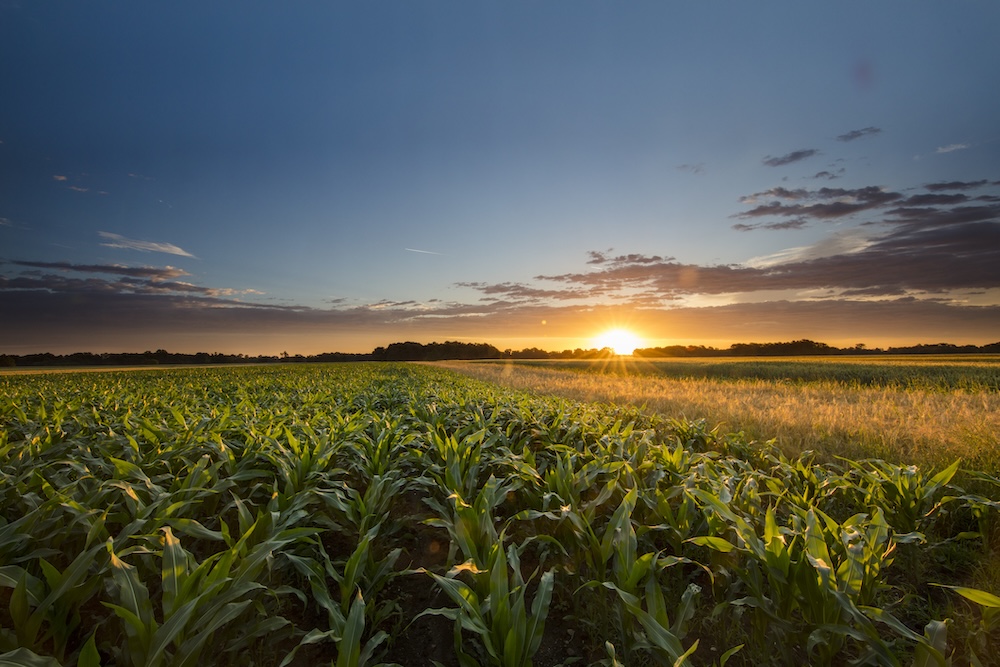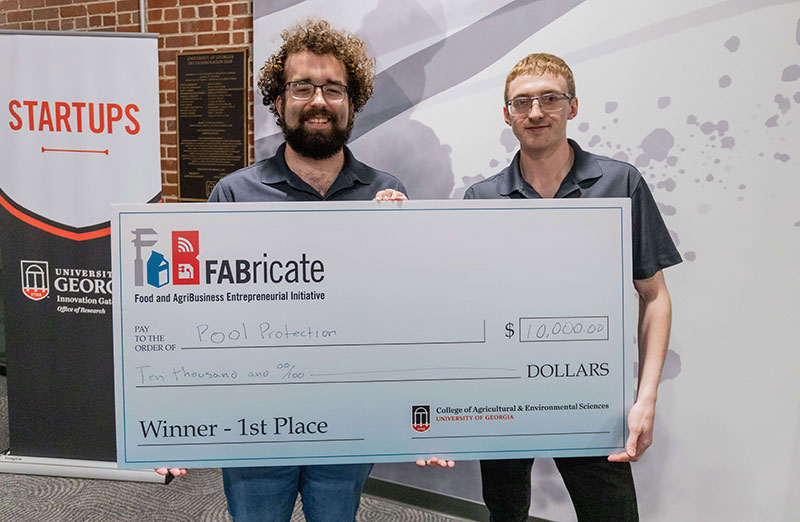This spring when southeast Georgia farmers started pulling their signature sweet Vidalia onions out of the ground, Daniel Jackson and his staff were preparing their lab for the coming onion onslaught.
As soon as they’re cleared for shipping, farmers send bags of onions — hundreds of them — to the University of Georgia Crop Quality Lab in Athens for testing. The UGA lab is tasked with determining how sweet, how spicy and how oniony this year’s Vidalia onions are.
“We’ll be running onions all day, every day for the next two months,” said Jackson, who works in the Crop Quality Lab.
The Crop Quality Lab is one of the five labs that comprise the UGA Agricultural and Environmental Services Laboratories, which is best known for performing UGA Extension’s famous spring soil tests for homeowners and farmers.
By the time they’re done, the three-person staff will have cored, crushed and analyzed somewhere between 2,500 and 4,000 pounds of onions. Paid for by testing fees and grants from the Vidalia Onion Committee, the lab’s analysis is used by farmers to optimize growing conditions to ensure that next year’s crop is even better. Plant breeders use the information to vet new onion varieties.
This is the second growing season the UGA Crop Quality Lab has been open. Last summer, just a few hundred pounds of onions were tested for a UGA Extension variety trial and a handful of onions were tested for private farmers. This year, demand for their service has more than quadrupled.
“Last year we analyzed almost entirely research samples. This year we are running a large number of research samples, but have also received quite a few samples from farmers and seed companies as well,” Jackson said. “This week I took a van down to the research center in Lyons and picked up more than 1,000 pounds of onions. I’ll make that trip to Lyons about every two weeks, so there’s definitely a demand for this service.”
Yes, it smells like a room full of onions
Everyone has a different palate and different preferences when it comes to onions, so it is hard to say — with certainty — what makes a good sweet onion. UGA’s lab quantifies the chemical compounds that make up the Vidalia onion’s distinctly sweet taste.
UGA technicians test for sugar content, which makes the onions sweet; lachrymatory factor, which is the specific compound that causes your eyes to water, but also makes the onions hot; and sulfinates, the chemical compounds that give onions that lingering onion taste, Jackson said.
To test the onions, they take core samples from 10 individual onions of a certain variety or from a certain field. They crush them using a custom hydraulic press and collect the onion juice. Then, two technicians work in tandem in a laboratory the size of a galley kitchen to test for the chemical compounds.
Speed is of the essence as some of the volatile compounds can break down in a matter of minutes, Jackson said.
There’s a lot we still don’t know about Georgia’s favorite onion
In addition to on-demand testing for farmers and crop breeders, the laboratory is also engaged in two long-term projects with UGA and USDA researchers.
The first involves using trained USDA taste testers to identify how people taste different concentrations of sugar, lachrymatory factor and sulfinates in onions. Taste testers will, for instance, rate the hotness of an onion with a known lachrymatory factor concentration on a scale of one to 10.
Next summer, having established the connection between the concentrations of flavor compounds and consumers’ taste experience, Jackson and a team of UGA and USDA reseachers will determine the chemical composition of onions that consumers prefer through wide-scale public taste tests.
Vidalias' sweet, mild flavor is the result of the relatively sandy, sulfur-free soil in which they grow. UGA vegetable horticulturalist Tim Coolong is working to find out how much sulfur-containing fertilizer can be applied to an onion field before that mild flavor is sacrificed, Jackson said.
The lab A.O. — After Onions
These onion projects will keep Jackson’s staff busy through the end of the summer. After onion season the UGA Crop Quality Lab will turn its attention to other produce.
They plan to work with Georgia’s fledgling wine grape and olive industries this fall to provide analysis of wine grapes and olive oil.
For more information about the services offered by the UGA Crop Quality Lab and other UGA Agricultural and Environmental Services Laboratories, visit aesl.ces.uga.edu.
The Agricultural and Environmental Services Laboratories is a unit of the UGA Extension within the College of Agricultural and Environmental Sciences whose mission is to provide objective analytical services to agricultural producers, consumers and agribusinesses.








